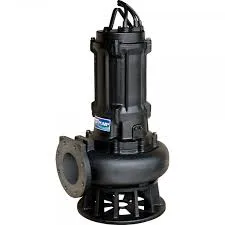TEL:
+86 13120555503
English
- Afrikaans
- Albanian
- Amharic
- Arabic
- Armenian
- Azerbaijani
- Basque
- Belarusian
- Bengali
- Bosnian
- Bulgarian
- Catalan
- Cebuano
- Corsican
- Croatian
- Czech
- Danish
- Dutch
- English
- Esperanto
- Estonian
- Finnish
- French
- Frisian
- Galician
- Georgian
- German
- Greek
- Gujarati
- Haitian Creole
- hausa
- hawaiian
- Hebrew
- Hindi
- Miao
- Hungarian
- Icelandic
- igbo
- Indonesian
- irish
- Italian
- Japanese
- Javanese
- Kannada
- kazakh
- Khmer
- Rwandese
- Korean
- Kurdish
- Kyrgyz
- Lao
- Latin
- Latvian
- Lithuanian
- Luxembourgish
- Macedonian
- Malgashi
- Malay
- Malayalam
- Maltese
- Maori
- Marathi
- Mongolian
- Myanmar
- Nepali
- Norwegian
- Norwegian
- Occitan
- Pashto
- Persian
- Polish
- Portuguese
- Punjabi
- Romanian
- Russian
- Samoan
- Scottish Gaelic
- Serbian
- Sesotho
- Shona
- Sindhi
- Sinhala
- Slovak
- Slovenian
- Somali
- Spanish
- Sundanese
- Swahili
- Swedish
- Tagalog
- Tajik
- Tamil
- Tatar
- Telugu
- Thai
- Turkish
- Turkmen
- Ukrainian
- Urdu
- Uighur
- Uzbek
- Vietnamese
- Welsh
- Bantu
- Yiddish
- Yoruba
- Zulu
Telephone: +86 13120555503
Email: frank@cypump.com
Feb . 19, 2025 06:16 Back to list
septic tank pumps
Maintaining an efficient and reliable septic pump tank system is critical for anyone relying on this method for wastewater management. Often overlooked by many property owners, a well-functioning septic system is not only essential for health and hygiene but also contributes to the longevity of your property infrastructure. In this regard, understanding the intricacies of septic systems, including their maintenance and potential upgrades, can save thousands of dollars and headaches down the road.
Moreover, considering advanced systems, such as aerobic treatment units that introduce oxygen into the waste material to support faster decomposition, demonstrates an authoritative grasp of modern technologies. These systems can be particularly advantageous in areas where soil absorption is a challenge or where conventional drain fields may not be suitable. In engaging with septic pump tank systems, both established professionals and informed property owners play a role in ensuring environmental safety and personal convenience. Sharing success stories and real-world experiences can bolster the E-E-A-T (Experience, Expertise, Authoritativeness, Trustworthiness) factors, as this shared information often aids others in making informed decisions regarding their wastewater management. The positioning of your septic system, both literally on your property and metaphorically in your list of priorities, can impact not only property value but also community health standards. Thoughtful selection, informed by industry expertise and real-world application, ensures that the system will function optimally, while sustainable practices further carry the responsibility into future generations. Engaging in forums or local workshops led by experts in septic technology can widely dispel myths and provide much-needed education. Not only does this build trust, but it firmly establishes a community of well-informed users who advocate for best practices in septic system maintenance. Ultimately, champions of innovation and sustainability in wastewater management can inspire confidence not only in their systems but in their commitment to preserving essential natural resources. This proactive approach offers a template for others, demonstrating that modern wastewater management can be both advanced and accessible, resulting in satisfied clients and thriving ecosystems alike.


Moreover, considering advanced systems, such as aerobic treatment units that introduce oxygen into the waste material to support faster decomposition, demonstrates an authoritative grasp of modern technologies. These systems can be particularly advantageous in areas where soil absorption is a challenge or where conventional drain fields may not be suitable. In engaging with septic pump tank systems, both established professionals and informed property owners play a role in ensuring environmental safety and personal convenience. Sharing success stories and real-world experiences can bolster the E-E-A-T (Experience, Expertise, Authoritativeness, Trustworthiness) factors, as this shared information often aids others in making informed decisions regarding their wastewater management. The positioning of your septic system, both literally on your property and metaphorically in your list of priorities, can impact not only property value but also community health standards. Thoughtful selection, informed by industry expertise and real-world application, ensures that the system will function optimally, while sustainable practices further carry the responsibility into future generations. Engaging in forums or local workshops led by experts in septic technology can widely dispel myths and provide much-needed education. Not only does this build trust, but it firmly establishes a community of well-informed users who advocate for best practices in septic system maintenance. Ultimately, champions of innovation and sustainability in wastewater management can inspire confidence not only in their systems but in their commitment to preserving essential natural resources. This proactive approach offers a template for others, demonstrating that modern wastewater management can be both advanced and accessible, resulting in satisfied clients and thriving ecosystems alike.
Share
Next:
Latest news
-
ISG Series Pipeline Pump - Chi Yuan Pumps | High Efficiency, Durable Design
NewsAug.01,2025
-
Advanced Flue Gas Desulfurization Pump with GPT-4 Turbo | Durable & Efficient
NewsJul.31,2025
-
ISG Series Vertical Pipeline Pump - Chi Yuan Pumps | Advanced Hydraulic Design&Durable Construction
NewsJul.31,2025
-
ISG Series Vertical Pipeline Pump - Chi Yuan Pumps | Energy Efficient & Low Noise
NewsJul.31,2025
-
pipeline pump - Chi Yuan Pumps Co., LTD.|High Efficiency&Low Noise
NewsJul.31,2025
-
ISG Series Vertical Pipeline Pump - Chi Yuan Pumps Co., LTD.|High Efficiency, Energy Saving, Low Noise
NewsJul.30,2025










